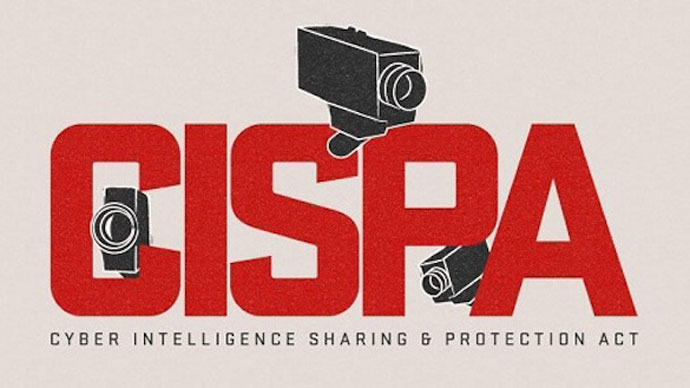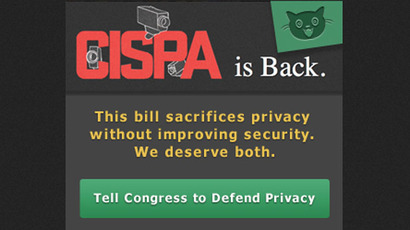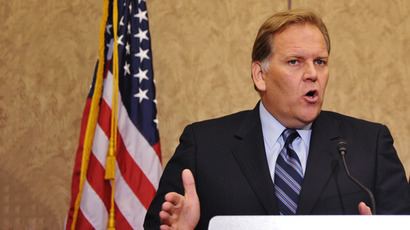Amended CISPA moves to House after closed-door vote

Members of the House Intelligence Committee accepted amendments to the controversial Cyber Intelligence Sharing and Protection Act Wednesday, voting to include the new provisions by an 18-2 margin after a closed door meeting.
Members of the House Intelligence Committee accepted amendments to the controversial Cyber Intelligence Sharing and Protection Act Wednesday, voting to include the new provisions by an 18-2 margin after a closed door meeting. It puts the bill back on the table for consideration after failing last year.
The proposed CISPA legislation has been criticized by the American Civil Liberties Union, Electronic Frontier Foundation, and major Internet companies including Reddit and Craigslist, who say the bill all but eliminates privacy online. Facebook withdrew its support for the bill in March, joining 30,000 other websites in their opposition.
CISPA critics have decried the language in the bill, which grants private companies and the federal government unprecedented power to share an individual’s personal information for purported national security reasons. The House Intelligence Committee has repeatedly warned of the risk presented by potential cyber-attacks, threats that some experts say are unfounded.
CISPA is expected to be reintroduced to Congress as soon as next week after failing to gain enough momentum to summon a vote last year. US President Barack Obama has stated in the past that he would veto CISPA because of security concerns.
Evidently attempting to address those misgivings, the House Intelligence Committee’s closed-door session was expected to introduce amendments that would give privacy advocates and civil liberties officers more oversight on how personal information is shared and used.
Including language to deny companies legal immunity if they use cyber-threat disclosures to hack other companies and dropping language that allows the government to use cyber-threat information for national-security purposes were also reportedly on the docket, according to the Christian Science Monitor.
“We have seen the language of these amendments – and what we’ve been hearing is that they still don’t tackle the core concerns including tailoring so that information that’s shared by private industry can’t be used for purposes other than cyber-security,” said Mark Jaycox, an analyst for the Electronic Frontier Foundation.
Before the secret meeting Rep. Adam Schiff (D-California) said he planned to propose an amendment that would require companies to at least attempt to remove personally identifiable information from data before sharing it with the federal government.
“I think the other amendments are definitely a step in the
right direction, but we still need the private sector to take
efforts on its own to remove personally identifiable
information,” Schiff told The Hill. “I still believe that
the House, Senate and White House can come to a common agreement on
these outstanding issues. It just shouldn’t be that
difficult."
“I think we can maintain the proper balance of protecting the country from cyber-attacks and also ensuring the privacy rights of the American people are respected.”














